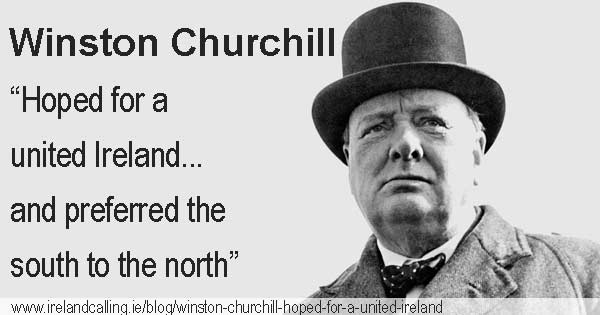Former British Prime Minister Winston Churchill hoped for a united Ireland, according to a confidential report to the Secretary of the Department of External Affairs, Frederick Boland.
The Irish Times report that while Churchill was not on good terms with Eamon de Valera due to Ireland’s neutral stance during the Second World War, he liked Ireland as a country.

Bonald said that Churchill spoke to the Irish ambassador to Britain, John W Dulanty, after the Remembrance Day Ceremony in London in 1946.
Dulanty was the last Irish ambassador to Britain to lay a wreath at the ceremony until Dan Mulhall in 2014.
As Dulanty was leaving the ceremony, he was approached by Churchill. The report says that Churchill told Dulanty that he was glad to see him there.
Churchill is reported to have said to Dulanty: “I said a few words in parliament the other day about your country because I still hope for a united Ireland. You must get those fellows in the North in, though; you can’t do it by force.
“There is not, and never was, any bitterness in my heart towards your country.”
Five years later Boland had replaced Dulanty as Irish Ambassador to Britain. He had a conversation with Churchill who told him that he had wanted to visit Ireland to see a racehorse that he had purchased but the horse had died.
Churchill said: “I’m sorry. I would have liked to have gone over and I’m sure the people would have given me a good reception – particularly if my horse had won. The Irish are a sporting people.
“You know I have had many invitations to visit Ulster but I have refused them all. I don’t want to go there at all, I would much rather go to southern Ireland. Maybe I’ll buy another horse with an entry in the Irish Derby.”
Boland wrote in his report that these were the actual words that Churchill had said as best as he could remember.
Churchill’s spent much of his childhood in Dublin, living in what is now Áras an Uachtaráin This is because his father acted as secretary to the Duke of Marlborough, lord lieutenant of Ireland, who was Churchill’s grandfather.